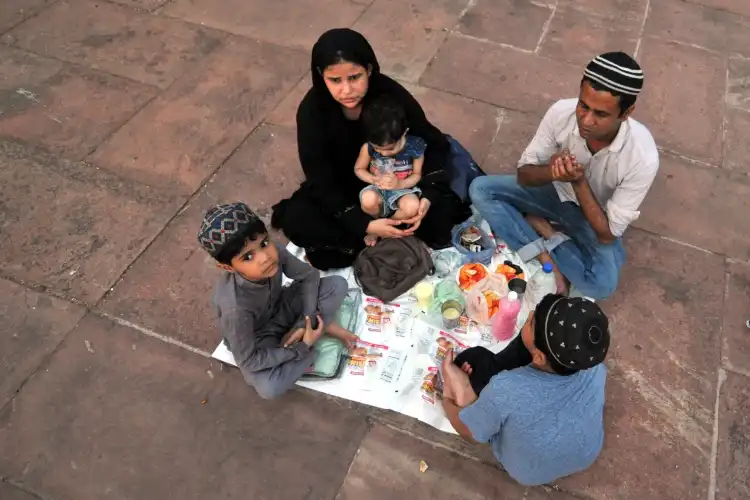
Eman Sakina
In the Qur’an, Allah has recommended we “eat what is lawful and good on the Earth” (2:168). Searching through the Qur’an further, we can identify what foods are beneficial; and these include honey (16: 68-69), vegetables such as corn and herbs (55:12, 80:27-32), and fruits such as olives, dates, grapes, pomegranates (6: 99,141), and bananas (56: 28-33).
Friday Musings
He has also recommended we eat the meat of certain animals and their milk, as well as fresh fish and birds. “He created cattle for you, wherein is warmth and many gains, and you eat thereof” (16:5, 22:28).
“For you, there is in the cattle a lesson; We give you to drink what is in their bellies from between the chime and the blood pure milk, easy and palatable for those who drink it” (16:66).
“He is the one Who made the sea of service that you might eat fresh (fish) meat from it” (16:14, 35:12).
“And the meat of fowls of what they like” (56:21).
However, it is essential to note that all such foods should be consumed in moderation: “eat and drink and do not commit excesses; indeed He does not love those who are excessive” (7:31).
Fasting is both a required and advised dietary practice in Islam (2:183), and it may have physical benefits, particularly for overweight people. Those who complete a month of supervised fasting show signs of weight loss, lower blood sugar and lower cholesterol levels. Additionally, we can avoid long-term consumption of foods that increase our risk of obesity and cardiovascular disease thanks to our better self-control, self-restraint, and discipline. Additionally, this self-control and resolve are transferable traits that affect other facets of our lives, empowering us to strengthen our character and advance spiritually.
The Prophet has advised against overeating as identified by the hadith:
“Don’t indulge in overeating because it would quench the light of faith within your hearts”.
Another frequently cited hadith recommends that one should fill one-third of the stomach with food, one-third with water and one-third should be left empty.
We can also take lessons from the reported eating habits of the Ahlul-Bait. It has been described that the Prophet and Ali ibn Abu Talib would refrain from eating bread from refined flour, and would rather eat that which contained barley and bran. Both are also thought to have seldom consumed meat; perhaps less than once a month, suggesting a vegetarian type diet is preferable. Ali has been reported as saying, “Don’t let your stomach become a graveyard for animals”.
Food, and how it ought to be consumed as mentioned in the Qur’an and as practiced by the Ahlul-Bait, correspond well with the balanced diet advocated by health authorities today. For instance, the proportion of fruits and vegetables to meat mentioned in the Qur’an is reported to be around 3:1 [2: part 2] which corresponds to the recommendations of the British Heart Foundation (BHF) encouraging the consumption of “plenty of fruit and vegetables” and “some meat, fish… and other non-dairy sources of protein”.
References advocating physical activity can be inferred from the Qur’an and Prophetic traditions, which share the common theme of maintaining respect for the body. Commonly overlooked forms of exercise are in fact amongst the main tenets of Islam, including obligatory prayers, the Hajj pilgrimage, and fasting in the holy month of Ramzan. Although the primary reason for such acts is for spiritual benefit, there are associated physical benefits.
Indeed, we may need reminding that striving for good physical health is a form of worship when performed with the sincere intention of attaining the pleasure of Allah.
